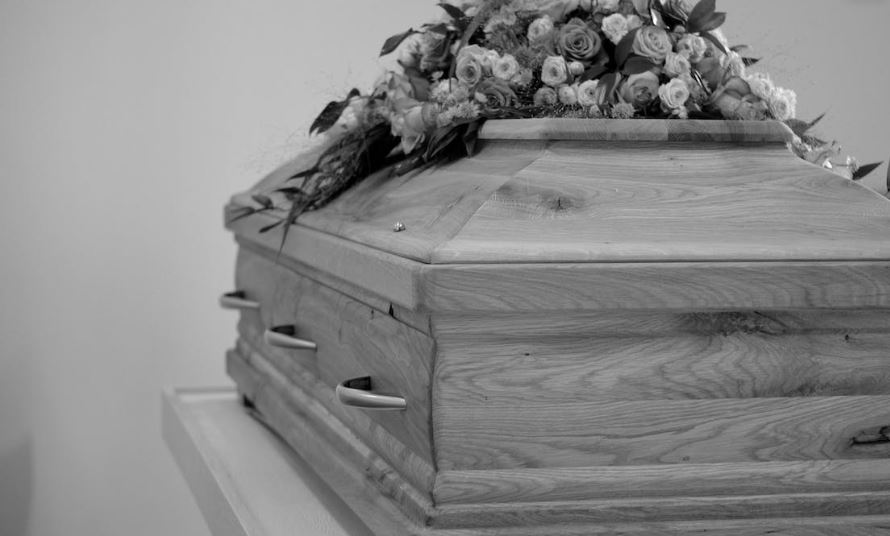I Didn’t Know

A Closer Look at Why Cremation Services are Gaining in Popularity
May 9, 2022
How a Funeral Director Can Help You
May 16, 2022
Losing a loved one to death is not unfamiliar to me, and I have been through it several times before. I experienced the sadness, I found consolation and was consoled by others. As a Funeral Celebrant at Morrissett I have also officiated many memorial services and Celebration of Life ceremonies for those who have passed on, and walked alongside their families during their grieving process. I have read books and received training in bereavement counseling, and I learned the right words to say to encourage others so I thought I knew what to do. I thought I knew what it was like and what to expect. Until I didn’t.
This past winter I experienced the devastating loss of two precious family members. They were on two different sides of my family, and passed within a very short time of one another. One death was completely unexpected and it left their loved ones reeling in shock. The other occurred after a brief illness, but their death still felt unexpected because we had been hoping for a full recovery. Both people were dearly loved, and are dearly missed.
When I first found myself in the midst of this time of grief I was completely caught off guard by my own reactions. I had feelings of helplessness, rage, and at times of complete emotional disconnection. The day after the first family member passed I also found myself stuck in an in-between place. I hadn’t processed everything enough to feel sadness. That person was so young, and it seemed unfathomable they were gone, so I was stuck waiting. Waiting for answers to the complicated questions, waiting for details, waiting to know how I could help, waiting to connect with family members so we could comfort one another. It felt wrong to do anything normal, because it was not a normal day. I was in between normal and grieving, and felt emotionally and physically immobilized. So I spent most of the day just sitting, and thinking, and still waiting. That day was the threshold between the world that existed with them, and a world without them. It seemed so very wrong, and so unfair.
As planning progressed after the death of my first family member the illness of my second suddenly worsened. My physical and emotional support was suddenly needed even more by my family, and a fight-or-flight trauma response kicked in. I spent about a month in an adrenaline-fueled frenzy and physically pushed myself to the limit. I cleaned, I cooked, I packed, I organized, I traveled back-and-forth, I cried, I hugged, I talked, and I listened. I didn’t realize it was possible to push my body to accomplish so much when I was already feeling such emotional and physical pain. Yet I still felt completely helpless, unhelpful, and inept. There was always something to do, but somehow I still didn’t know what to do. I found myself at a loss as to how I could best support my immediate family, the people I love the most in the world, in the face of such a difficult time. All my training and everything I had learned from previous experiences went out the window.
Many times I have told families that it is okay to let someone be not okay, and have even written about it. I stated countless times over the years that when a person is grieving it is enough to simply hold space with them so they can feel whatever they need to feel. We need to fight the inclination to try and fix it, even though we naturally want to try and stop their grief. It is difficult because we care about them and don’t want them to hurt anymore, but I knew that the best way to deal with that kind of pain is to face it and work though it. Yet when it was my own teenage son crying next to me, heartbroken, every maternal instinct in my body screamed at me to try and fix it. I desperately wanted his pain to stop, even though I also didn’t want him to stop crying or expressing his emotions. Before that moment I didn’t know how difficult it would be to practice what I preach, to sit and do nothing except be there for a person that I love.
I also didn’t know it would be so hard, nor how to begin to process my own pain of either death when my family still needed me so much. I scarcely had time to process the first loss before the second occurred. For many weeks my concern for the immediate family of my first loved one occupied a lot of my thoughts. Then the death of the second individual, who was an integral part of my immediate family, tore a gaping hole in the fabric of our everyday lives. Holding vigil at their bedside, taking care of our extended family, and planning the details of that person’s funeral kept me occupied for over a month. The frequent contact with family members during that month was incredibly comforting, as was talking about both individuals. It felt as if I was holding all my loved ones more closely, both those who were alive and those who were dead. That focus helped fend off the grief.
When time came for both funerals they occurred one day after another. It was a lot. After a busy and exhausting weekend, and a tumultuous month, everything finally slowed down. I discovered that, as exhausted as I was, I hated the stillness. I was caught off guard by the emptiness I felt after all the planning and activities were over. I missed the constant contact with family, and missed focusing on my two lost loved ones. Once normal life began those two people were no longer the focus of my efforts, and it felt like losing them again. I was now supposed to be the person that lived a life without them in it, and I was in no way ready for that. I didn’t know how to be that person, and didn’t know how to live that life, because everything seemed different. Yet “normal” life began again, even though nothing felt normal at all.
I was also utterly and completely depleted, because a month of emotional upheaval and pushing yourself past your limits will eventually take its toll. Once the stress-induced hormones wore off I experienced a huge burnout. It seemed so strange to come to a screeching halt after being so incredibly productive for so long, but I found myself incapable of completing even the most simple of tasks. Laundry piled up, we ate a lot of takeout, and the grief I had been unable to process began to express itself through physical pain in my body. I knew beforehand that I would probably experience a shutdown after such a loss, so I was prepared somewhat. I didn’t realize how much I would crash, nor how long it would take me to begin to work myself out of it.
A few weeks passed, and during that time I did a lot of resting and self-care. The long cold months of winter were also coming to a close, and spring slowly began to appear. As the Earth began to re-awaken with signs of life, so did I. I started to learn how to live my everyday life while holding those people in my heart, even if I did not speak of them every day. I took walks, I became a bit more social. I found joy in the tiny green shoots growing up out of the ground, and in watching the baby rabbits playing in my backyard. The bright light of the sun helped me feel warm and hopeful again. Most days I am a little bit better, and on the more difficult days I remember to be patient with myself. After all, I’m not learning how to get over grief. I’m learning how to live with grief. My grief is a part of who I am, just as my love for them remains a part of me.
I’m not completely healed, but at least I got through those devastating first few months. I learned a lot about myself, because now I know many of the things I didn’t know. I learned about love and family, patience and pain, sadness and strength. I also learned that, no matter what, I’m going to be okay. That I is something I do know.
~Jennifer Roberts Bittner
Funeral Celebrant/Life Tribute Specialist
Morrissett Funeral and Cremation Service
6500 Iron Bridge Rd.
N. Chesterfield, VA 23234
Serving the Richmond area since 1870



